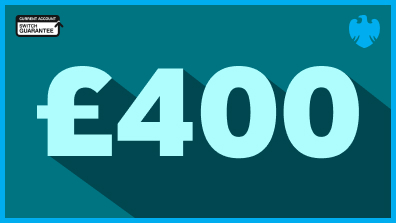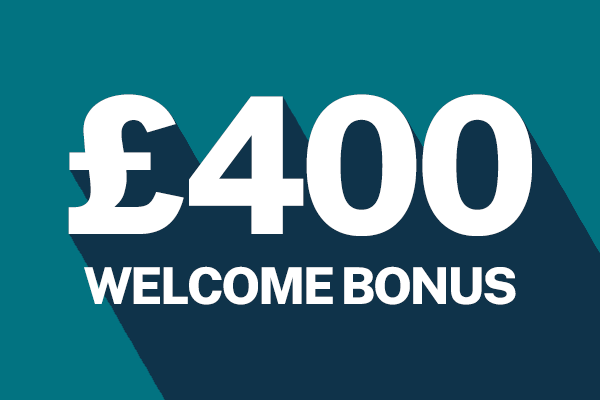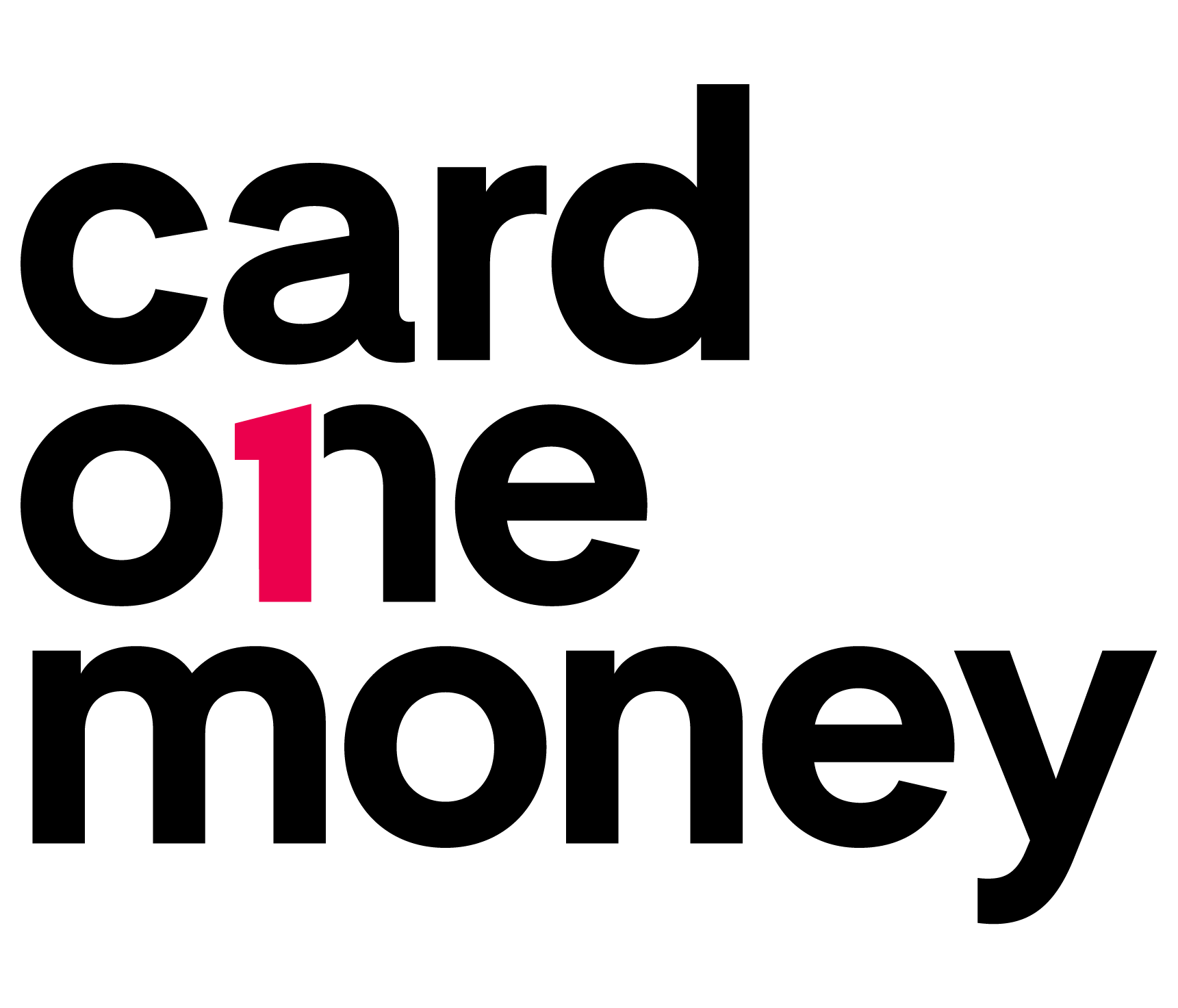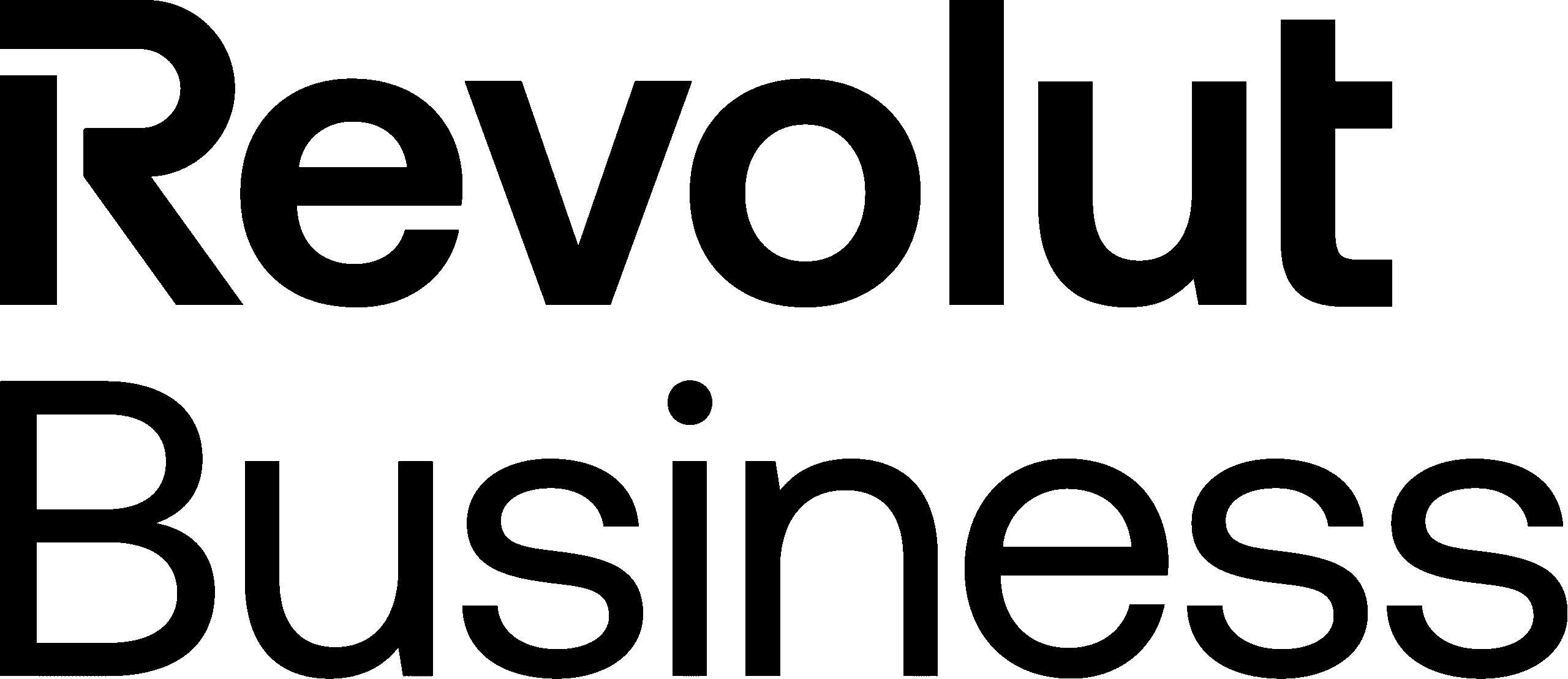Calculates taxes & VAT for you automatically
TABLE OF CONTENTS
March 2026
Tired of being overcharged and underserved on your business bank account? See how Swoop can help you get the best deal today.
For a personalised banking report, and access to tailored funding and savings opportunities for your business, simply register here.
Choose your business current account options
Good for
Use the checkbox beside each bank’s name to select and compare banks:

Account fee
Free
Opening time
10 mins
Bank transfers
Free
Invoicing
doneOverdrafts
closeCalculates taxes & VAT for you automatically

email Email successfully sent
close Error sending email, please try again.
Average account opening time
1 Day
Account fee
Free
Compatible accountancy software
Xero
Bank transfer fee
Free
Overdraft facility
closeDedicated relationship manager
closeATM
doneDebit card
doneCredit card
closeCharge card
closeCheque
closeDirect debit
doneStanding order
doneApple Pay
closeGoogle Pay
closeSamsung Pay
closeIn branch
closeOnline
doneMobile app
doneTelephone
closePost Office
doneOpen your ANNA business current account in less than 10 minutes and receive your debit Mastercard® within five working days.
24/7 customer support, invoice and expense management, multi-director access, business expense cards for employees with spending controls, one transactions in one place via openbanking connection, get paid via payment link or QR code, instant account open.

email Email successfully sent
close Error sending email, please try again.
Account fee
Free for 12 months
Opening time
Within 3 weeks
Bank transfers
From £0.35
Invoicing
doneOverdrafts
Subject to availability
12 months free digital banking

email Email successfully sent
close Error sending email, please try again.
Average account opening time
5 Weeks
Account fee
Free for 12 months
£8.50/month thereafter
Average days to receive a debit card
4 Days
Average days to setup internet banking
5 Days
Compatible accountancy software
Quickbooks, Xero
Bank transfer fee
£0.35
Subject to availability
Access to relationship managers
doneATM
doneDebit card
doneCredit card
doneCharge card
doneCheque
doneDirect debit
doneStanding order
doneApple Pay
doneGoogle Pay
closeSamsung Pay
closeIn branch
doneOnline
doneMobile app
doneTelephone
donePost Office
doneGet £400 when you open your account1
At Barclays Business Banking, we’re not like a lot of other banks – we offer a human touch, as well as over 300 years’ experience. This means we can support you in those vital early months of starting your business, and help it flourish beyond that. It’s because of this, over 900,000 businesses choose to bank with us.
Our Barclays Business Account gives you:
You’ll also get:
Choose us – because your business deserves a partner not just a bank.
Independent Service Quality Survey Results
Overall service in europe

email Email successfully sent
close Error sending email, please try again.
Account Fee
Free for 12 months
Opening time
Within 7 days
Bank transfers
From £0.35
Invoicing
doneOverdrafts
Subject to availability
12 months free digital banking

email Email successfully sent
close Error sending email, please try again.
Average Account Opening Time
7 days
Account Fee
Free for 12 months
£8.50/month thereafter
Average days to receive a debit card
4 Days
Average days to setup internet banking
5 Days
Compatible Accountancy Software
Quickbooks, Xero
Bank Transfer Fee
£0.35
Subject to availability
Access to relationship managers
doneATM
doneDebit Card
doneCredit Card
doneCharge Card
doneCheque
doneDirect Debit
doneStanding Order
doneApple Pay
doneGoogle Pay
closeSamsung Pay
closeIn branch
doneOnline
doneMobile app
doneTelephone
donePost Office
doneSmartBusiness Dashboard
Bring together key information from your business banking accounts and apps to help save time and simplify your admin
International Team
Whether you’re importing or exporting, starting out or expanding further, we have the tools and services to help your business grow. It’s easy to make international payments through online banking, or from the Barclays app
High Growth and Entrepreneur experts
Whether you’re seeking practical tools, expert knowledge, connections or inspiration, our innovative approach means you don’t just bank with us – you bank on your future
Comprehensive guides
Our range of guides can help with everything from business structures to finding funding
Get £400 when you open your account1
At Barclays Business Banking, we’re not like a lot of other banks – we offer a human touch, as well as over 300 years’ experience. This means we can support you in those vital early months of starting your business, and help it flourish beyond that. It’s because of this, over 900,000 businesses choose to bank with us.
Our Barclays Business Account gives you:
You’ll also get:
Choose us – because your business deserves a partner not just a bank.
Independent Service Quality Survey Results
Overall service in europe

email Email successfully sent
close Error sending email, please try again.

Account fee
FREE for first 3 months then £12.50 per month + an application fee of £55
Opening time
4 hours
Bank transfers
£0.30
Invoicing
closeOverdrafts
closeNo credit checks

email Email successfully sent
close Error sending email, please try again.
Average account opening time
1 Day
Account fee
£12.50
Compatible accountancy software
Fully compatible with all accounting software
Bank transfer fee
From £0.30
Overdraft facility
closeDedicated relationship manager
closeATM
doneDebit card
doneCredit card
closeCharge card
closeCheque
doneDirect debit
doneStanding order
doneApple Pay
closeGoogle Pay
closeSamsung Pay
closeIn branch (you can only bank in branch to pay in cheques or withdraw cash via Barclays branches)
doneOnline
doneMobile app
doneTelephone
donePost Office
close
email Email successfully sent
close Error sending email, please try again.

Account fee
No monthly or annual fees, just an initial £9.95 initial card fee
Opening time
4 mins
Bank transfers
First 3 free each month and then £0.30 thereafter
Invoicing
doneOverdrafts
doneAccounting features included

email Email successfully sent
close Error sending email, please try again.
Average account opening time
4 Minutes
Account fee
No monthly or annual fees, just an initial £9.95 initial card fee
Compatible accountancy software
Integrated with all leading UK accountancy packages
Bank transfer fee
First 3 free each month and the £0.30 thereafter
Overdraft facility
closeDedicated relationship manager
closeATM
doneDebit card
doneCredit card
closeCharge card
closeCheque
closeDirect debit
doneStanding order
doneApple Pay
closeGoogle Pay
closeSamsung Pay
closeIn branch
closeOnline
closeMobile app
doneTelephone
closePost Office
doneSave time on financial admin
The Countingup business current account has built-in accounting software that automates the time-consuming aspects of bookkeeping and taxes.
Create and send invoices in seconds
Use your Countingup app to create and send unlimited professional invoices for free, and receive alerts when you’ve been paid.
Receive live business insights
With all your financial data in one place, you’ll receive real-time insights into your business finances with profit and loss reports, tax estimates and unpaid invoices.
Connect with your accountant
Share your bookkeeping data with your accountant in an instant with zero chance of duplication errors, data lags or inaccuracies.
– No monthly fees
– No credit checks
– First-class support
– Live business insights
– Create and send invoices in seconds
– Rated ‘Excellent’ on Trustpilot

email Email successfully sent
close Error sending email, please try again.

Account fee
£4.16 (£50/year)
Opening time
Your account can be opened on the same day you apply
Bank transfers
Free in 20 major currencies, 1.5% fee for other currencies
Invoicing
closeOverdrafts
closeManage business expenses easily with complete control & get great rates on international transfers. Free for charities & non-profits. No credit checks.
Overdraft Facility
closeDedicated relationship manager
doneATM
doneDebit Card
doneCredit Card
closeCharge Card
closeCheque
closeDirect Debit
doneStanding Order
doneApple Pay
doneGoogle Pay
doneSamsung Pay
doneIn branch
closeOnline
doneMobile App
doneTelephone
donePost Office
closeFree non-sterling transactions in 20 major currencies, and just 1.5% transaction fee in exotic currencies for both card transactions and international payments. Get access to 140+ currencies, send, recieve and manage (hold) funds in 38 currencies.
Our multi-currency IBANs allow you to make international transfers 24/7 that are tailored to your business, so you can get the most out of your money.
Join over 20,000 companies we’ve helped take control of their business expenses. We’ve helped our customers manage and move over £10 billion around the world since we started in 2005. Our cards, app and online platform give you complete control and visibility over team spending.
Access for unlimited users
Get complete control – teams only spend what you put on their cards, and you can adjust permissions for individual users so you have full visibility over their spending.
We offer same-day and next working day payments with most of our currencies so you can get settlements faster.
Protect your business from volatile currency markets with expert support on international payments from your dedicated account manager who is available Mon-Fri 08:00-17:00.
Work around the world – our cards* can be used in over 190 countries wherever Mastercard is accepted, and users can request top-ups anytime in our app.
£10 fee applies for each physical card, upto 100 available. Virtual cards are free and unlimited.
How we keep your money safe – we hold your funds in specially designated, safeguarded bank accounts, which keep your funds separated from our other assets. This means your funds are protected, however the Equals Money account does not fall under the Financial Services Compensation Scheme. Please see the product FAQs for more information.

Account fee
Free
Opening time
10 mins
Bank transfers
£0.20
Invoicing
doneOverdrafts
closeNew Limited company registration

email Email successfully sent
close Error sending email, please try again.
Average account opening time
10 minutes
Account fee
Free
Compatible accountancy software
Bank transfer fee
£0.20
Overdraft facility
closeDedicated relationship manager
closeATM
doneDebit card
doneCredit card
closeCharge card
closeCheque
closeDirect debit
closeStanding order
closeApple Pay
closeGoogle Pay
closeSamsung Pay
closeIn branch
closeOnline
doneMobile app
doneTelephone
closePost Office
closeNew Limited Company Registration
Submit your new company registration in less than 10 minutes
Open new company within 1 working day
Free business bank account and invoicing tool included
Smart Business Bank Account:
Open a bank account in under 10 minutes
Get access to all the tools, including Invoicing, Payments, Contacts manager, straight away
Receive a Mastercard in 5 working days
Manage your card online (freeze/unfreeze, view pin, cancel & request new)
Make payments protected with SCA
Categorise transactions
Invoicing Portal
Your customers will pay your invoices in 1 Click
Free with GoSolo business bank account
Raise invoices inside your banking app
Professional looking invoices with your logo and colours
Automatically match incoming payments to the invoices
Send automatic reminders to late customers
Register a UK Limited company and get a business bank account in a simple guided process
Free business bank account with no hidden charges
Free Mastercard with a business bank account
Free Mobile and Web App
Free company formation tool
Free tools for accounting and invoicing
Free tool for managing business contacts
Free GoSolo entrepreneur community support
Support 24/7

email Email successfully sent
close Error sending email, please try again.

email Email successfully sent
close Error sending email, please try again.
Average account opening time
2 days
Account fee
£6.50
Compatible accountancy software
Sage
Bank transfer fee
Free
Overdraft facility
closeDedicated relationship manager
closeATM
doneDebit card
doneCredit card
doneCharge card
closeCheque
closeDirect debit
doneStanding order
doneApple Pay
closeGoogle Pay
closeSamsung Pay
closeIn branch
doneOnline
closeMobile app
doneTelephone
donePost Office
done
email Email successfully sent
close Error sending email, please try again.

Account fee
Free
Opening time
Up to 5 days
Bank transfers
Free
Invoicing
doneOverdrafts
closeIBAN accounts in GBP, USD and EUR

email Email successfully sent
close Error sending email, please try again.
Average account opening time
Up to 5 days
Account fee
Free
Compatible accountancy software
Xero
Bank transfer fee
Free
Overdraft facility
closeDedicated relationship manager
doneATM
doneDebit card
closeCredit card
closeCharge card
doneCheque
closeDirect debit
doneStanding order
doneApple Pay
closeGoogle Pay
closeSamsung Pay
closeIn branch
closeOnline
doneMobile app
closeTelephone
closePost Office
closeJuni is the financial platform built for ecommerce
The Juni dashboard allows you to integrate your payment gateways, different bank accounts and ad networks in one dashboard allowing you to track all your funds, monitor your ROI and improve your cashflow.
With the help of the roles and permissions feature, you can grant your team custom access to Juni while retaining control and peace of mind.
Physical Juni cards available in GBP and as many virtual Juni cards as you need in GBP, EUR and USD. You’ll also get 2% cashback for your first 30 days, up to 1% thereafter. Cashback is paid on all eligible card spend.
World-class support with dedicated account managers.
Free business account with no sign up fee or monthly fees.
Apply in a few clicks.
Create IBAN accounts in GBP, USD and EUR, avoid paying unnecessary conversion fees by paying in the right currency.
Juni’s integration with Xero allows you to automatically sync your transactions from Juni directly to your Xero accounting software.
Juni’s partnership with SafeConnect allows you to instantly top up your Juni accounts in less than 30 seconds without having to manually enter your account details.
Improve cash flow with the option to apply for interest-free credit lines. Lines range from £10k to £2million with 37 to 60-day payment terms. Credit is available for UK companies only, upon eligibility. Penalties and interest may apply for customers that default on payments. Terms and conditions apply. See website for full details.

email Email successfully sent
close Error sending email, please try again.

Account fee
from £29
Opening time
Within 1 week
Bank transfers
From 1 EUR
Invoicing
closeOverdrafts
close
email Email successfully sent
close Error sending email, please try again.
Average days to open an account
Within 1 week
Average days to receive a corporate card
Virtual - instant, plastic 2-3 business days (within UK), 7-10 (international)
Average days to setup internet banking
Instant
Online
doneAll customers get Personal Manager support.
doneWith a strong focus on businesses with cross-border payment needs MultiPass offers a single account with an IBAN and local UK, US, EU details for quick and simple domestic transactions in GBP, USD, EUR and global payments in 30+ currencies. The platform lets you hold balances in multiple currencies and perform instant FX service at bank-beating rates that are especially valued by low margin businesses. Additionaly, all customers get Personal Manager support.

email Email successfully sent
close Error sending email, please try again.

Account fee
£10
Opening time
1 day
Bank transfers
£10 a month
Invoicing
doneOverdrafts
closeThe basic fee is valid until the 11th of March 2025

email Email successfully sent
close Error sending email, please try again.
Account fee
£10
Average account opening time
3.5 Days
Average days to receive a debit card
9 Days
Average days to setup internet banking
1 Day
Compatible accountancy software
Free Agent, Quickbooks, Xero
Bank transfer fee
£10 a month
Overdraft facility
closeDedicated relationship manager
closeATM
doneDebit card
doneCredit card
closeCharge card
closeCheque
closeDirect debit
doneStanding order
doneApple Pay
doneGoogle Pay
doneSamsung Pay
closeIn branch
closeOnline
doneMobile app
doneTelephone
closePost Office
closeSend and exchange money without hidden fees
Easily exchange money in up to 28 currencies at the interbank exchange rate, all from the palm of your hand.
Cut unnecessary costs and save money for growth.
Manage payments the hassle-free way
Staying in control of your business finances has never been easier. See a payments overview with schedule and status information, and execute everything from one place.
Save time with Bulk Payments
Pay multiple invoices or run payroll using bulk payments.
Make multi-currency payments to different countries in one batch.
Get rid of routine work with automated payments
No more forgotten or late payments when you set up scheduled payments in your account.
Automatically notify recipients that you’ve sent a payment, with estimated pay out date.
Connect your apps to simplify work with Revolut Connect
Revolut Connect allows you to connect and integrate in just a click with popular business software that you already use to simplify and streamline your workflow.
Radically better corporate cards
Easily track transactions and control cards activity by employees, including automated notifications.
Set monthly limits and get statements with transactions for each card separately.

email Email successfully sent
close Error sending email, please try again.

Account fee
£35 per month
Opening time
1 day
Bank transfers
First 100 free then £0.20
Invoicing
doneOverdrafts
closeEcommerce: accept payments on your checkout page and with platform plugins

email Email successfully sent
close Error sending email, please try again.
Average account opening time
1 Day
Account fee
£35
per month
Average days to receive a debit card
9 Days
Average days to setup internet banking
1 Day
Compatible accountancy software
Free Agent, Quickbooks, Xero
Bank transfer fee
£0
£0.20 after first 100 transfers
Overdraft facility
closeDedicated relationship manager
closeATM
doneDebit card
doneCredit card
closeCharge card
closeCheque
closeDirect debit
doneStanding order
doneApple Pay
doneGoogle Pay
doneSamsung Pay
closeIn branch
closeOnline
doneMobile app
doneTelephone
closePost Office
closeSend and exchange money without hidden fees
Easily exchange money in up to 28 currencies at the interbank exchange rate, all from the palm of your hand.
Cut unnecessary costs and save money for growth.
Manage payments the hassle-free way
Staying in control of your business finances has never been easier. See a payments overview with schedule and status information, and execute everything from one place.
Save time with Bulk Payments
Pay multiple invoices or run payroll using bulk payments.
Make multi-currency payments to different countries in one batch.
Get rid of routine work with automated payments
No more forgotten or late payments when you set up scheduled payments in your account.
Automatically notify recipients that you’ve sent a payment, with estimated pay out date.
Connect your apps to simplify work with Revolut Connect
Revolut Connect allows you to connect and integrate in just a click with popular business software that you already use to simplify and streamline your workflow.
Radically better corporate cards
Easily track transactions and control cards activity by employees, including automated notifications.
Set monthly limits and get statements with transactions for each card separately.

email Email successfully sent
close Error sending email, please try again.

Account fee
Free
Opening time
1 day
Bank transfers
£0.20
Invoicing
doneOverdrafts
closeFree tools for accounting and invoicing

email Email successfully sent
close Error sending email, please try again.
Average account opening time
1 Day
Average days to receive a debit card
1 Day
Average days to setup internet banking
1 Day
Account fee
Free
Compatible accountancy software
Free Agent, Quickbooks, Xero, Sage
Bank transfer fee
£0.20
Overdraft facility
closeDedicated relationship manager
closeIn branch
closeOnline
doneMobile app
doneTelephone
closePost Office
done· Free business bank account with no monthly fees
· Sign up in minutes
· FSCS protected bank account provided by Clearbank
· Free tools for accounting and invoicing
· Add up to 35 business expense cards for free
· Virtual office address service
· Free receipt importer
· Free mastercard usage globally
· In app support 365 days a year
· Free VAT manager
· Free invoicing tool
· Free company formations tool
· Invoice protection – For limited companies only
· No credit check required
ATM
doneDebit card
doneCredit card
closeCharge card
closeCheque
closeDirect debit
doneStanding order
doneApple Pay
doneGoogle Pay
closeSamsung Pay
closeReceipt importer:
Upload or take a photo of the receipt and we’ll find the matching transaction. Upload receipts in bulk, or as you go.
VAT Manager:
Calculate and file your monthly or quarterly VAT returns directly from your Tide account.
Payment via Direct Debit
Tide has partnered with GoCardless so you can get your invoices paid by Direct Debit. With GoCardless, you’ll save time on admin and you’re more likely to get paid on time!
Tide Masterclasses:
View upcoming events at tide.co/events and watch previous Masterclasses at tide.co/blog

email Email successfully sent
close Error sending email, please try again.
Account fee
No monthly or annual fees
Opening time
4 mins
Bank transfers
First 3 free each month and the £0.35 thereafter
Invoicing
doneOverdrafts
doneIntegrated with all accounting packages
email Email successfully sent
close Error sending email, please try again.
Average account opening time
4 Minutes
Account fee
No monthly or annual fees
Average days to receive a debit card
3 Days
Average days to setup internet banking
1 Day
Compatible accountancy software
Integrated with all leading UK accountancy packages
Bank transfer fee
First 3 free each month and the £0.35 thereafter
Overdraft facility
doneDedicated relationship manager
closeATM
doneDebit card
doneCredit card
closeCharge card
closeCheque
closeDirect debit
doneStanding order
doneApple Pay
closeGoogle Pay
closeSamsung Pay
closeIn branch
closeOnline
doneMobile app
doneTelephone
donePost Office
donePay 0.55% (min £4) on cash deposits via the Post Office
High street presence via Post Office branch network – 11.5k branches
email Email successfully sent
close Error sending email, please try again.
* Swoop’s service features a selection of providers from whom we receive commission.
| Compare all features |  Free |  Grow | ||||||||||
| Free account | done | done | close | close | done | done | done | done | done | close | done | done Note |
| Overdrafts | close | done | done | close | close | close | close | close | close | close | close | done |
| Loans | close | done | done | close | close | close | close | close | close | close | done | done |
| 24/7 customer support | close | done | done | done | close | done | close | close | done | done | done | close |
| Great for sole traders & startups | done | done | close | done | done | done | done | done | done | close | done | done |
| Bank in branch | close | done | done | done | close | close | close | close | close | close | close | done Note |
| UK regulated bank | close | done | done | close | close | close | close | close | close | close | close | done |
| FSCS deposit protection (up to £85,000) | close | done | done | close | close | close | close | close | close | close | done | close |
| Invoicing | done | done | done | close | done | done | done | done | done | close | done | close |
| Multi currency accounts | close Note | done Note | done Note | close | close Note | close | close Note | done Note | done Note | done Note | done | close |
| Connects to Xero | done | done | done | close | done | close | done | done | done | done | done | close |
| Connects to Quickbooks | close | close | close | close | close | close | close | close | done | done | done | done |
| Connects to Sage | close | done | done | close | close | close | close | close | done | done | done | done |
| Connects to Free Agent | close | done | done | close | close | close | close | close | done | done | done | done |
For a personalised banking and saving report tailored to your business, simply register and securely integrate your bank account through our Open Banking technology.
Register your business with Swoop and integrate your bank account for your personalised report
So why don’t more businesses do this with their banks? The truth is that many businesses are being overcharged – approximately £700 per account – and also underserved by their banks, so we’re here to help put that right.
Try our free, quick and simple business bank account comparison checker. Compare fees and services across all the key banks to ensure you’re matched with the best bank(s) for your business.
When it comes to banking, businesses are reluctant to change, fearing hassle, charges, or interruption to services. The good news is that this is no longer the case, it’s a quick and painless process, and switching business current accounts will soon be as common as switching any other service provider.
Swoop has access to 72 business current account offerings across 16 banks. This means we can quickly and securely analyse your usage patterns to determine which bank you would be better off banking with, and whether additional accounts to manage specific transactions, for example deposits, would offer you savings. Register here to receive your tailored banking report.
To help you find the best current account for your business, it’s worth considering the following points:
Cost: Fees and charges will vary depending on the account you choose. Some business bank accounts charge monthly or annual fees, while others don’t. There may also be charges for certain transactions such as cash payments or international transfers.
Transaction limits: Some banks offer a set number of free transactions per month and anything over this will be charged a fee. For example, you may be able to carry out five UK transfers per month, but if you go over this number you’ll have to pay a fee.
Managing your account: If you’d prefer to be able to go into a branch to pay in cash and cheque payments, you might better off looking for a bank with a local branch. However, many digital or app-only banks allow you to deposit cash at Post Office branches (sometimes with a fee).
Size of business: Some banks offer different account options depending on the size of your business and whether you’re a startup or more established company. Look for an account that’s likely to best serve your business needs.
Links to accounting software: A number of business bank accounts enable you to link up with accounting software such as Xero, QuickBooks, FreeAgent and Sage.
Invoicing services: You may also be able to benefit from invoicing services which create and send invoices and help you to better organise your accounts.
International banking: If you regularly send money overseas or travel abroad, look for an account that offers competitive international transfer fees and low/no fees for using your card abroad.
Overdraft options: Does your business go into its overdraft from time to time? If so, look for an account with a generous overdraft facility and low fees.
Other financial products: If you need other products like a a business loan or a grant. Speak to a Swoop expert to find out your options.
Credit checks: Some app-based providers won’t run a credit check as part of the application process which can make them a good option for those with bad credit. Use our tool to compare business accounts for those with bad credit to see which banks don’t require a credit check to apply.
When comparing business bank accounts you’ll need to factor in the cost of any fees – this could be a monthly fee for using the account or a charge for account transactions. It’s therefore important to read the terms and conditions of your chosen account carefully.
Some of the fees you may come across include:
Monthly or annual account fee: This is a flat fee that some bank accounts charge per month or per year simply for having the account. Some banks will waive this fee for the first 12 to 18 months.
Electronic payments (in or out): This includes Faster Payments to other individuals or companies, bill payments, direct debits and standing orders. Some business bank accounts won’t charge you for these transactions, while others might give you a set allowance per month and then charge per transaction if you go over this limit.
Cash or cheque payments (in or out): You could be charged a flat fee or percentage fee for deposits and withdrawals via a bank branch or at a Post Office counter. Some banks also charge for depositing a cheque.
Additional payments and services: This can include services such as making a CHAPs payment or issuing a banker’s cheque.
International transactions: Fees may be charged for international payments, such as a SEPA or SWIFT payment, from your bank account to one overseas, as well as for receiving an international payment into your account. You may also have to pay a fee for purchases or cash withdrawals made on your bank card overseas.
Overdraft charges: Some bank accounts charge an overdraft set-up fee as well as a daily fee, or you may be charged interest.
In August 2025 the BVA BDRC published the findings from its Business Banking Service Quality survey. Undertaken as part of a regulatory requirement and published at the request of the providers and the Competition and Markets Authority, the study surveyed 18,000 SME bank account customers between July and June 2025.
Each customer was asked how likely they would be to recommend to other SMEs –
The results show the proportion of customers of each provider, among those who took part in the survey, who said they were ‘extremely likely’ or ‘very likely’ to recommend each service. A detailed breakdown for each category can be seen in the table below.
Source: BVA BDRC
| Ranking | Provider | Score |
|---|---|---|
| 1 | Monzo | 85% |
| 2 | Mettle by NatWest | 82% |
| 3 | Starling Bank | 81% |
| 4 | Handelsbanken | 76% |
| 5 | Tide | 72% |
| 6 | Zempler Bank | 67% |
| 7 | Metro Bank | 64% |
| 8 | NatWest | 62% |
| 9 | Santander | 61% |
| 10 | Lloyds Bank | 59% |
| 10 | Virgin Money | 59% |
| 12 | TSB | 54% |
| 13 | Royal Bank of Scotland of Scotland | 53% |
| 14 | Barclays | 51% |
| 14 | HSBC UK | 51% |
| 14 | Bank of Scotland | 51% |
| 17 | The Co-operative Bank | 50% |
| Ranking | Provider | Score |
|---|---|---|
| 1 | Monzo | 88% |
| 2 | Starling Bank | 85% |
| 3 | Mettle by NatWest | 83% |
| 4 | Tide | 75% |
| 5 | NatWest | 73% |
| 6 | Zempler Bank | 71% |
| 7 | Lloyds Bank | 70% |
| 8 | Barclays | 68% |
| 9 | Royal Bank of Scotland | 67% |
| 10 | Santander | 66% |
| 11 | Metro Bank | 65% |
| 12 | HSBC UK | 64% |
| 13 | Bank of Scotland | 63% |
| 14 | Virgin Money | 62% |
| 15 | TSB | 60% |
| 16 | Handelsbanken | 58% |
| 17 | The Co-operative Bank | 43% |
| Ranking | Provider | Score |
|---|---|---|
| 1 | Handelsbanken | 68% |
| 2 | Metro Bank | 62% |
| 3 | Santander | 58% |
| 4 | Royal Bank if Scotland | 56% |
| 5 | Lloyds Bank | 54% |
| 5 | HSBC UK | 52% |
| 7 | NatWest | 51% |
| 7 | Barclays | 48% |
| 9 | Bank of Scotland | 44% |
| *The ranking does not include any brands where the eligible sample size is less than 100. (Monzo, Starling Bank, The Co-operative Bank, Tide, TSB, Virgin Money and Zempler Bank are excluded from this measure). Starling Bank does not currently offer SME credit (overdraft and loan) services but did so during the survey period. Mettle is excluded from this measure as do not offer SME overdraft and loan services. |
| Ranking | Provider | Score |
|---|---|---|
| 1 | Handelsbanken | 85% |
| 2 | Monzo | 76% |
| 2 | Mettle | 76% |
| 4 | Starling Bank | 73% |
| 5 | Zempler Bank | 66% |
| 6 | Metro Bank | 63% |
| 7 | Lloyds Bank | 62% |
| 8 | Tide | 61% |
| 9 | Royal Bank of Scotland | 60% |
| 10 | Virgin Money | 56% |
| 10 | NatWest | 56% |
| 12 | HSBC UK | 54% |
| 13 | TSB | 53% |
| 14 | Santander | 51% |
| 15 | Bank of Scotland | 50% |
| 16 | Barclays | 47% |
| 17 | The Co-operative bank | 46% |
| Ranking | Provider | Score |
|---|---|---|
| 1 | Handelsbanken | 73% |
| 2 | Metro Bank | 66% |
| 3 | Virgin Money | 55% |
| 4 | The Co-operative Bank | 53% |
| 5 | NatWest | 50% |
| 5 | Santander | 50% |
| 7 | Lloyds Bank | 49% |
| 7 | Bank of Scotland | 49% |
| 9 | Royal Bank of Scotland | 48% |
| 9 | TSB | 48% |
| 11 | HSBC UK | 43% |
| 12 | Barclays | 40% |
| *Mettle, Monzo, Starling Bank, Tide and Zempler Bank are excluded from this measure as do not operate a branch network. |
There are two main reasons you might benefit from either switching bank account or opening an additional account. First – and most obviously – you might be able to find a better deal that will save you money. For example, you might find a bank that will offer you a cheaper overdraft or lower fees. Some of the newer digital accounts have no monthly fee (digital – i.e. you can’t use cheques) and some banks will have introductory offers such as an interest-free overdraft, no monthly charges for a limited period, or free accounting software – though you might still need to pay for things like cash deposits or ATM withdrawals.
Switching banks is comparable to switching energy or broadband, or business insurance providers – sometimes the best deals are only offered to new customers! Second, your business might have grown and your existing provider might not be able to offer the services that you require, for example a larger overdraft facility, specialist support services or better customer services. Whatever your reasons, there is nothing stopping you from switching business bank accounts at any time.
Multi-banking can certainly save you money if, for example, you open an additional account and move the most expensive transactions to it. Some banks, for example, have specialist benefits for businesses that are more digital.
It takes a maximum of seven working days to switch if you’re a small business covered by the Current Account Switch Guarantee. In other words, your new bank account should be up-and-running fewer than seven days after you notify your bank account provider.
Yes, any new bank will run a credit check before offering you banking services.
Yes, you can. Some providers (e.g. app-based providers) will let you open a new account if you’ve had credit problems in the past, though it’s unlikely the big, high street banks will accept you. Use our comparison tool to see bank accounts that require no credit check to apply.
Yes. Look at the summary information for the different business bank accounts in our comparison table above. Click on the bank account that most appeals – and the new bank will do almost all the work and walk you through the process. You’d continue to use your old bank account for up to seven days, by which time you’ll have received your new debit card for the new account. Switching business bank accounts is covered by the Current Account Switch Guarantee, which was introduced by the government in 2013 onto help people switch their bank accounts quickly and easily.
During the seven day ‘handover’, your old bank and your new bank will work together to make sure that any direct debits, standing orders and other transfers are ported over seamlessly to your new current account.
Rest assured this wouldn’t happen. Your previous bank would redirect any payments linked to your current account to your new bank account – this ensures you don’t miss any payments.
If you look at the summary details Swoop has given above for each of our current account banking partners, you’ll be able to see what works for you.
There’s only one we can think of but it doesn’t apply if you switch banks via Swoop - some banks might not offer new customer all offers immediately, so do your due diligence.
Business bank accounts are aimed at both startups and established businesses. As with personal bank accounts, you can make deposits and withdrawals, use a debit card for purchases, and apply for an overdraft. The main difference is that for business bank accounts, in addition to monthly or annual fees, most banks will charge you fees per business transaction – so you may have to pay a small fee every time you deposit cash, write a cheque, set up a direct debit or standing order, or make a bank transfer.
First, have a look below at the list of services that business bank accounts usually offer – and see which apply to you:
There should be no penalty for switching, but make sure you pay off any debts you have with your existing account provider before you switch (e.g. your overdraft balance or any unpaid bills). It’s also worth double-checking with your provider that there aren’t any circumstances where switches incur a penalty.
Written by
Rachel has been writing about finance and consumer affairs for over a decade, helping people to get to grips with their finances and cut through the jargon. She's written for a range of websites and national newspapers including MoneySuperMarket, Money to the Masses, Forbes UK, and Mail on Sunday. Rachel has covered almost every financial topic, from car insurance and credit cards, to business bank accounts and mortgages.
Swoop promise
At Swoop we want to make it easy for SMEs to understand the sometimes overwhelming world of business finance and insurance. Our goal is simple – to distill complex topics, unravel jargon, offer transparent and impartial information, and empower businesses to make smart financial decisions with confidence.
Find out more about Swoop’s editorial principles by reading our editorial policy.
Related pages
Join the 110,000+ businesses just like yours getting the Swoop newsletter.
Free. No spam. Opt out whenever you like.



























We work with world class partners to help us support businesses with finance
Kingfisher Way, Silverlink Business Park, Newcastle upon Tyne, NE28 9NX, UK
View in Google MapsAberystwyth Innovation and Enterprise Campus
Gogerddan Campus
Aberystwyth University
Ceredigion
SY23 3EE
Dogpatch Labs, The CHQ Building, Custom House Quay, Dublin, Ireland
View in Google MapsSuite 801, Level 8, 84 Pitt Street, Sydney, NSW 2000, Australia
View in Google Maps43 W 23rd St, New York, NY 10010, United States
View in Google Maps21 Dreyer Street, Cape Town, South Africa, 7708
View in Google Maps
Swoop Finance Limited helps UK firms access business finance by working directly with businesses and their trusted advisors. We act as a credit broker, not a lender, and do not provide loans or finance products ourselves. We introduce applicants to a panel of lenders, equity funds, and grant agencies based on individual circumstances and creditworthiness.
Commission Disclosure: We typically receive a commission from the finance provider (either a fixed fee or a fixed percentage of the amount you receive) upon successful placement. Different providers pay different rates. For certain lenders, we may have influence over the interest rate, which can impact the total amount payable under your agreement.
Regulatory Information:
FCA: Authorised and regulated by the Financial Conduct Authority as a credit broker (FRN: 936513) and registered as an Account Information Services Provider (Ref: 833145).
ICO: Registered with the Information Commissioner’s Office (Ref: ZA600162); registration can be verified at ico.org.uk.
Company Details: Registered in England & Wales with Companies House (No. 11163382). Registered Address: The Stable Yard, Vicarage Road, Stony Stratford, Milton Keynes, MK11 1BN. VAT Number: 300080279.
Terms: All finance and quotes are subject to status, income, and terms and conditions. Applicants must be aged 18 or over. Guarantees and indemnities may be required. Please refer to our terms and conditions and our complaints procedure for further details.
Clever finance tips and the latest news
Delivered to your inbox monthly
Join the 110,000+ businesses just like yours getting the Swoop newsletter. Free. No spam. Opt out whenever you like.
Thanks for requesting a call back
a member of the team will be in touch.




